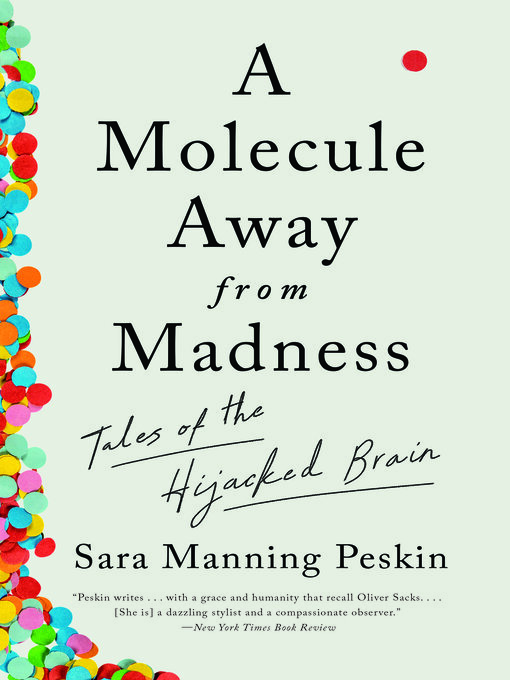Riveting stories of the brain on the brink, from an acclaimed cognitive neurologist.
Our brains are the most complex machines known to humankind, but they have an Achilles heel: the very molecules that allow us to exist can also sabotage our minds. Here are gripping accounts of unruly molecules and the diseases that form in their wake.
A college student cannot remember if she has eaten breakfast. By dinner, she is strapped to a hospital bed, convinced she is battling zombies. A man planning to propose marriage instead becomes violently enraged, gripped by body spasms so severe that he nearly bites off his own tongue. One after another, poor farmers in South Carolina drop dead from a mysterious epidemic of dementia.
With an intoxicating blend of history and intrigue, Sara Manning Peskin invites readers to play medical detective, tracing each diagnosis from the patient to an ailing nervous system. Along the way, Peskin entertains with tales of the sometimes outlandish, often criticized, and forever devoted scientists who discovered it all.
Peskin never loses sight of the human impact of these conditions. Alzheimer's Disease is more than the gradual loss of a loved one; it can be a family's multigenerational curse. The proteins that abound in every cell of our bodies are not simply strings of oxygen, hydrogen, nitrogen, and carbon; they are the building blocks of our personalities and relationships. A Molecule Away from Madness is an unputdownable journey into the deepest mysteries of our brains.




